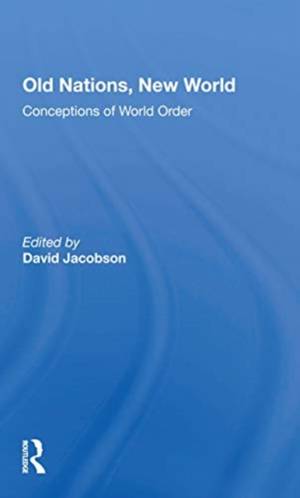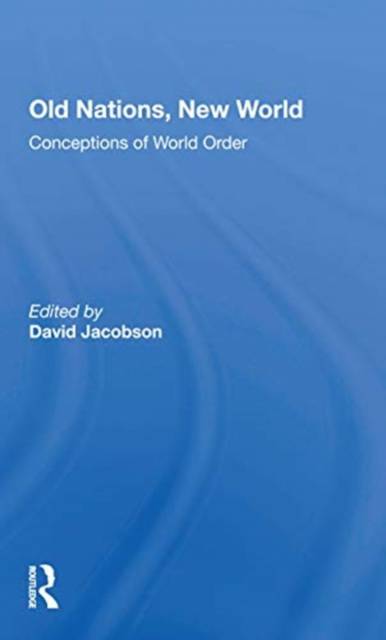
- Afhalen na 1 uur in een winkel met voorraad
- Gratis thuislevering in België vanaf € 30
- Ruim aanbod met 7 miljoen producten
- Afhalen na 1 uur in een winkel met voorraad
- Gratis thuislevering in België vanaf € 30
- Ruim aanbod met 7 miljoen producten
Zoeken
€ 56,95
+ 113 punten
Uitvoering
Omschrijving
This volume explores key states and their changing conceptions of the international order in the post-Cold War era. Taken collectively, the contributors' analyses of the United States, the Soviet Union and its successor states, Japan, the People's Republic of China, the East Asian Little Dragons and Germany and the European Community paint a detailed portrait of the emerging world order. This multidisciplinary group of contributors utilizes a diversity of theoretical and methodological approaches to confront common themes and questions: How do states reorganize the world by creating idioms and conceptions of international order? What is the state's definition of its own role and the role of others? How has the state's idiom and conception of the international order shifted from the recent past? What role does the past play in approaches to the world order-in terms of historical traditions, fears, and memories? These questions are illuminated by considering such crucial issues as the state's approach to international or supranational institutions and legal codes, particularly in the area of economy and international human rights, and the role of the state vis-Ã -vis other states: Does the state have hegemonic tendencies and an active role in maintaining international stability? Does it stress independence or interdependence? Isolationism or internationalism? These original essays suggest the nascent form the international order is taking in an otherwise turbulent world. Understanding how states view the post-Cold War arena is of paramount importance for comprehending the development of the new world order. In addressing these issues, this volume not only provides concrete, timely answers but offers a variety of theoretical and methodological tools for scholars, policymakers, and the informed public.
Specificaties
Betrokkenen
- Auteur(s):
- Uitgeverij:
Inhoud
- Aantal bladzijden:
- 235
- Taal:
- Engels
Eigenschappen
- Productcode (EAN):
- 9780367297268
- Verschijningsdatum:
- 9/11/2020
- Uitvoering:
- Paperback
- Formaat:
- Trade paperback (VS)
- Afmetingen:
- 148 mm x 233 mm
- Gewicht:
- 430 g

Alleen bij Standaard Boekhandel
+ 113 punten op je klantenkaart van Standaard Boekhandel
Beoordelingen
We publiceren alleen reviews die voldoen aan de voorwaarden voor reviews. Bekijk onze voorwaarden voor reviews.











